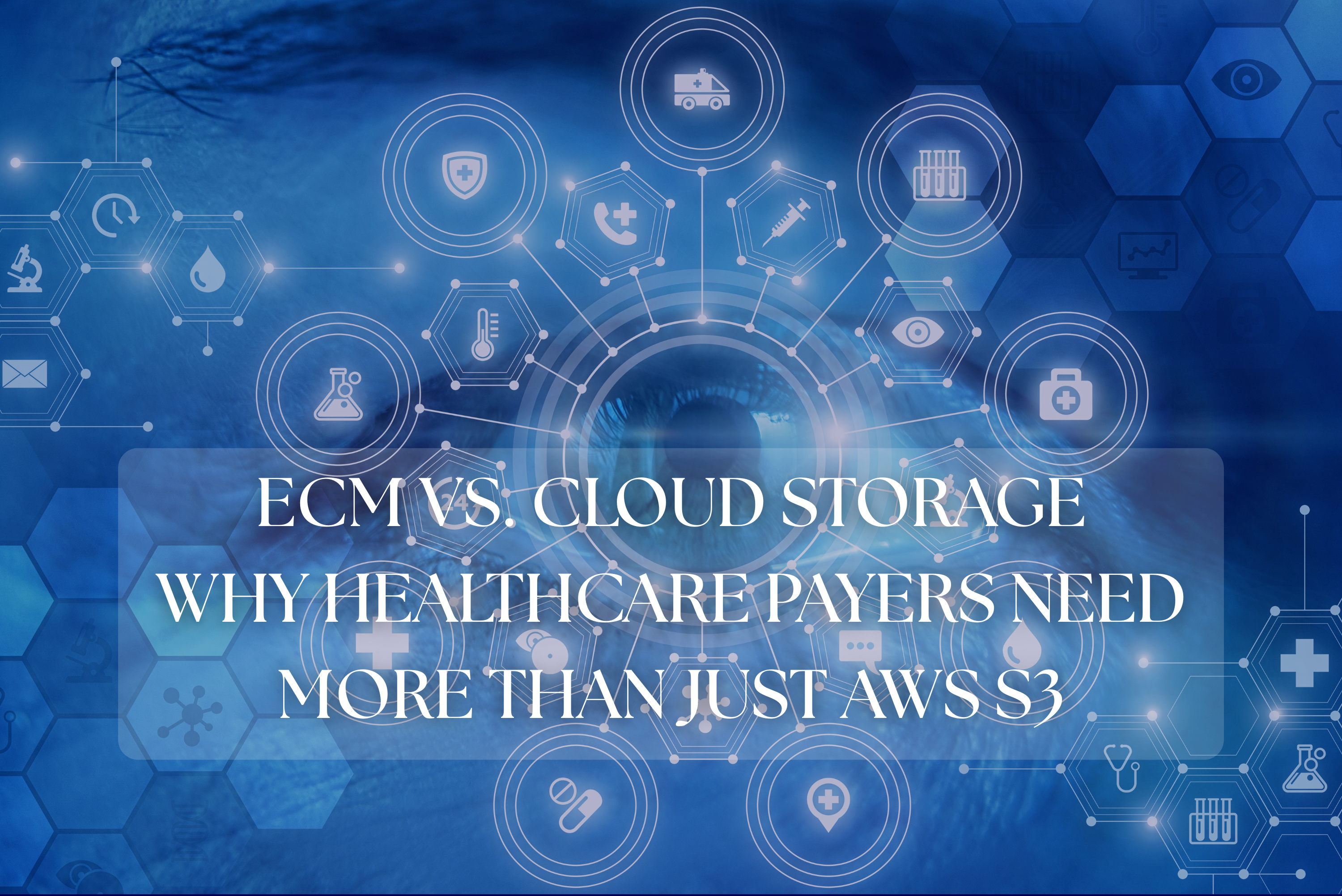
The healthcare industry is undergoing a massive digital transformation. Payers and providers are migrating workloads to the cloud, investing in digital-first workflows, and exploring AI-driven automation. At the heart of this transformation lies a critical question:
Should healthcare organizations rely solely on cloud storage like AWS S3, or do they need a full-fledged Enterprise Content Management (ECM) solution?
The short answer: cloud storage alone isn’t enough. Let’s explore why.
Platforms like AWS S3, Google Cloud Storage, or Azure Blob are excellent for scalable storage. They provide cost-effective ways to store massive amounts of healthcare data, from patient records to medical imaging.
Pros:
Affordable, scalable storage
Secure with strong encryption
Easily integrates with cloud-native apps
Cons:
No built-in workflow automation
Limited metadata management for healthcare compliance
Doesn’t natively support HIPAA-specific content controls
Retrieval and classification can be time-consuming
In short, cloud storage answers “Where do I put my data?” but not “How do I manage, secure, and use it effectively?”
Enterprise Content Management (ECM) platforms like NewgenOne go far beyond basic storage. They don’t just hold data; they structure it, classify it, secure it, and make it actionable.
Key Advantages for Healthcare Payers:
Regulatory Compliance: HIPAA-ready, with built-in audit trails.
Intelligent Classification: Auto-tagging of claims, forms, and patient records.
Workflow Automation: From claims processing to provider credentialing.
Data Security: Fine-grained access control at the content level.
AI & Analytics: Extract insights from unstructured content.
Think of ECM as the engine that powers healthcare operations—not just the warehouse.
Payers face unique challenges: claims backlogs, prior authorization delays, and increasing compliance mandates. Cloud storage helps with scale, but ECM helps with transformation.
Claims Automation: Faster adjudication with intelligent workflows.
Patient Experience: Quicker responses with structured data access.
Compliance Assurance: ECM keeps every piece of data audit-ready.
Operational Efficiency: Automating repetitive document handling saves time and cost.
The future isn’t ECM vs. cloud storage. It’s ECM on cloud storage. Platforms like NewgenOne leverage AWS S3 as the underlying storage, while adding intelligence, automation, and compliance layers on top.
This way, healthcare payers get the best of both worlds:
Elastic storage
Advanced content management
Compliance-ready digital workflows
Healthcare organizations don’t just need a place to store data—they need a way to manage, secure, and make it work for them. ECM bridges the gap between raw storage and intelligent healthcare operations.
At GHIT Digital, we help payers and providers implement ECM solutions like NewgenOne, integrated with AWS, Azure, or GCP, to deliver compliance, efficiency, and patient-first outcomes.